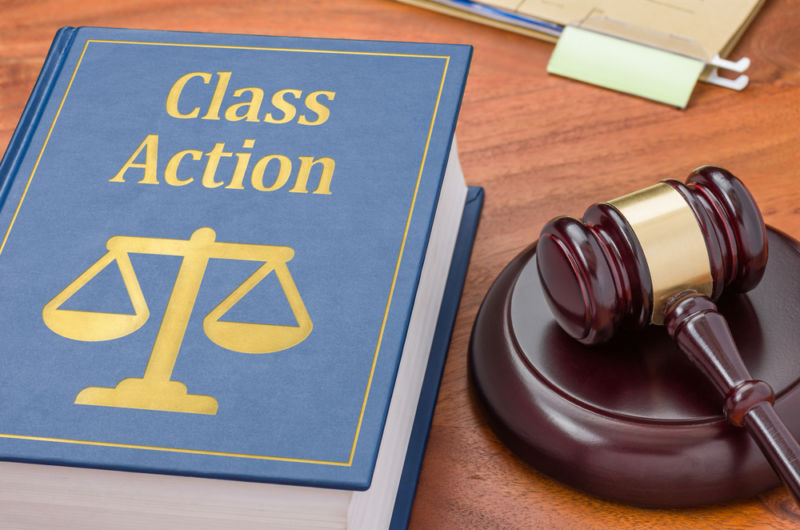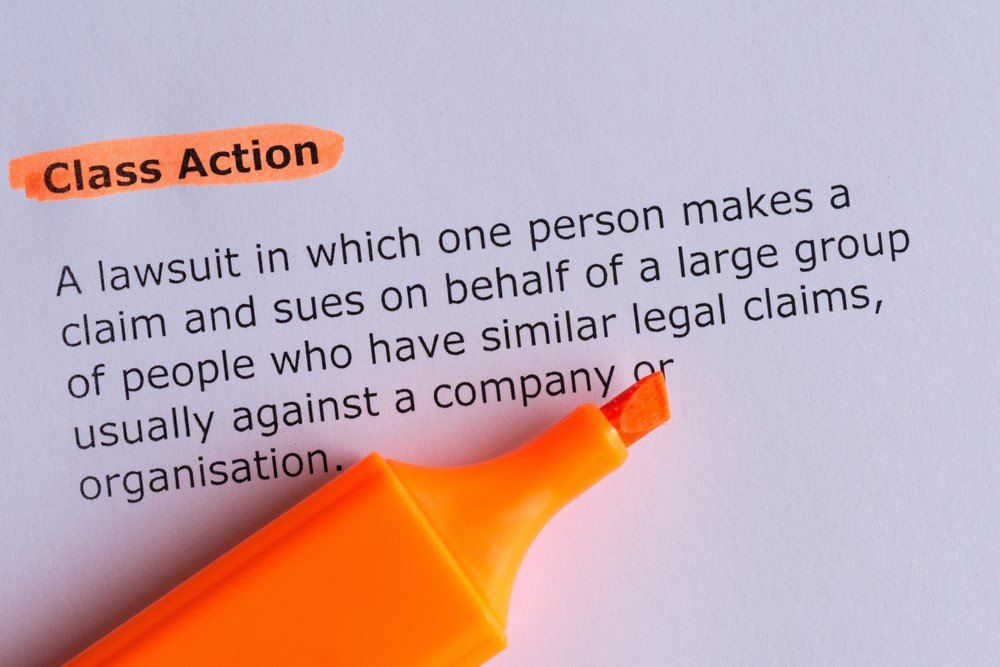Demystifying Class Activity Claims: A Closer Check Out Legal Proceedings
Class action legal actions can be challenging and intricate, frequently shrouded in a shroud of enigma for those unfamiliar with the legal procedures entailed. From understanding the requirements for class activity qualification to the duty of course representatives, and from the process of class accreditation to the resolution of these claims, we will certainly untangle the details and shed light on the inner workings of this legal system.
Comprehending Class Activity Claims
Recognizing Course Activity Legal action calls for a comprehensive evaluation of the legal procedures included in cumulative lawsuits. Class action claims are a type of lawsuit where a team of people with comparable insurance claims or grievances collaborate to start a suit against a common defendant. This kind of litigation allows individuals with limited sources to collectively seek justice, as it combines the strength of numerous specific insurance claims into a single lawsuit.
The process begins with the recognition of a lead complainant or class representative that submits the preliminary complaint in support of the whole course. The court then determines whether the instance fulfills the demands for class qualification, which consist of commonality, numerosity, typicality, and competence of depiction. If certified, the court alerts possible class participants, providing them a chance to opt-out if they wish to seek their insurance claims individually.
As soon as the class is certified, the lawsuits proceeds via numerous stages, including exploration, activity practice, and, if essential, test. The outcome of the claim can result in a negotiation or a judgment, which is binding on all course members unless they select to opt-out. Class activity suits can incorporate a wide variety of lawful issues, such as customer protection, safeties scams, employment discrimination, and ecological damage.
Comprehending the nuances of course action legal actions is critical for both plaintiffs and offenders associated with cumulative lawsuits. It calls for an extensive understanding of the lawful requirements for accreditation, the rights and responsibilities of course members, and the prospective advantages and risks connected with seeking or defending against class activity cases.
Identifying Class Action Qualification
To establish whether a lawsuit certifies as a class action claim, details criteria should be satisfied. These standards are made to guarantee that the situation can appropriately represent the interests of a large group of people that have actually endured comparable harm or have been impacted by the exact same problem. The vital element in determining course activity qualification is the visibility of a typical concern or problem that impacts all prospective class members.
To start with, a course activity suit requires numerosity, which suggests there should be a considerable number of potential course participants entailed. This makes certain that a course activity is an effective way to fix the insurance claims of a large group of people, instead than having each person file an individual legal action.
Second of all, there need to be commonality among the cases of the possible course members. This means that there have to be a typical concern of law or reality that is main to the case. If each potential course member's claim is unassociated and unique to the others, a course activity may not be ideal.

The Duty of Class Representatives
Course reps play an essential duty in class action claims by representing the rate of interests of the whole course. These individuals are selected from within the course to act as the public face of the legal action and are accountable for choosing in support of all class members. The function of course reps involves different duties and duties throughout the legal procedures.
Among the key responsibilities of class representatives is to supply details and aid to their fellow class members. They serve as a point of get in touch with and interaction in between the course participants and the attorneys representing them. This includes maintaining the course participants informed about important updates, answering their concerns, and resolving any concerns they may have.
Course agents likewise have the responsibility to actively take part in the litigation procedure (Assertio class action lawsuit). This includes functioning closely with the attorneys to establish legal strategies, gathering evidence, and providing testimony if needed. They must be actively included in all aspects of the case to make certain that the very best rate of interests of the entire course are represented
Additionally, class reps are in charge of approving negotiations or other resolutions gotten to in the claim. They should carefully assess the terms of the negotiation and choose that is in the most effective rate of interest of the entire course. This decision-making process calls Homepage for careful factor to consider and assessment with the course members.
The Refine of Class Qualification
The process of certifying a course in a course action legal action includes an extensive analysis of certain criteria to figure out if the instance satisfies the essential requirements for course certification. Course qualification is an important step in the litigation procedure as it determines whether a claim can continue as a class activity, allowing a big team of individuals with comparable cases to be represented collectively by one or a couple of individuals.
To acquire course qualification, the plaintiff needs to demonstrate that the suggested course satisfies certain prerequisites. These requirements generally consist of numerosity, commonality, typicality, and adequacy of depiction. Numerosity needs that the course is so big that joinder of all participants is impractical. Commonality demands that there are concerns of legislation or reality common to the course participants. Typicality requires that the insurance claims or defenses of the class agents are regular of those of the class. Competence of depiction ensures that the class agents will rather and effectively secure the passions of the course.
The court will certainly look at these standards and the complainant's evidence to identify if the proposed course fulfills the needed demands. The court may also take into consideration various other elements, such as whether a class activity is the premium technique to fix the dispute and whether the course is adequately cohesive.

When the court grants class qualification, the legal action can continue as a class action, permitting the complainants to collectively seek relief and potentially obtain a judgment or settlement that benefits the entire class.
Handling Class Activity Legal Actions
As soon as class qualification has been provided, the next step in dealing with a course activity claim is to browse the process of litigation or negotiation negotiations. Lawsuits refers to the lawful proceedings in court, where the complainant's lawyer presents evidence and disagreements to sustain their claims, and the defendant's lawyer counters with their very own proof and debates. This process can involve different stages, such as pretrial movements, exploration, and test.
On the other hand, negotiation negotiations include discussions between the events to get to an equally acceptable resolution without going to test. Negotiation provides may be made at any phase of the lawsuits process, and if both parties concur, a negotiation contract is reached.
Verdict
Finally, class action legal actions play a crucial duty in supplying justice and payment to large teams of individuals who have actually been hurt by the same entity. By licensing a class and appointing course reps, the legal process ends up being a lot more obtainable and reliable for the plaintiffs. Handling these legal actions can be a complex and lengthy procedure, yet it is important in holding companies answerable for their activities and ensuring fair results for all impacted parties.
From comprehending the requirements Your Domain Name for class activity qualification to the function of course representatives, and from the procedure of course accreditation to the resolution of these legal actions, we will unwind the intricacies and dropped light on the internal workings of this lawful device. The essential aspect in identifying class activity qualification is the presence of an usual question or problem that influences all potential class participants.
If each possible course member's insurance claim is one-of-a-kind and unrelated to the others, a course activity may not you can try this out be suitable.
Class agents play a crucial function in class activity legal actions by standing for the interests of the entire class.Once class accreditation has actually been provided, the following step in fixing a course activity legal action is to browse the procedure of lawsuits or negotiation arrangements.